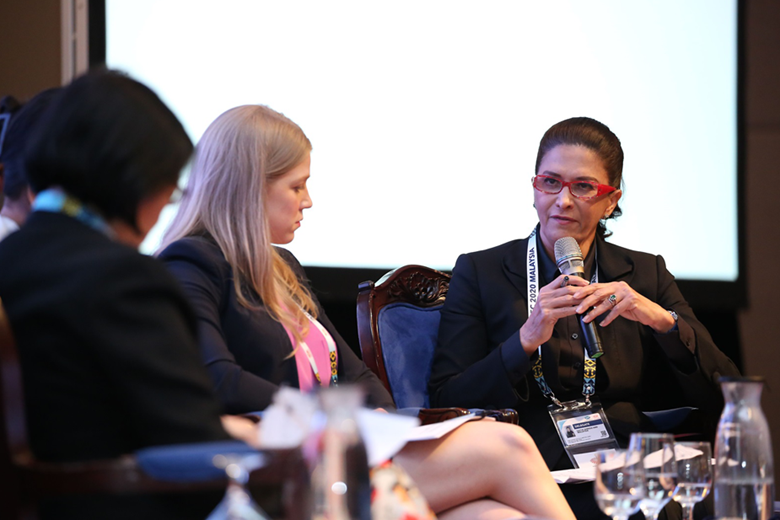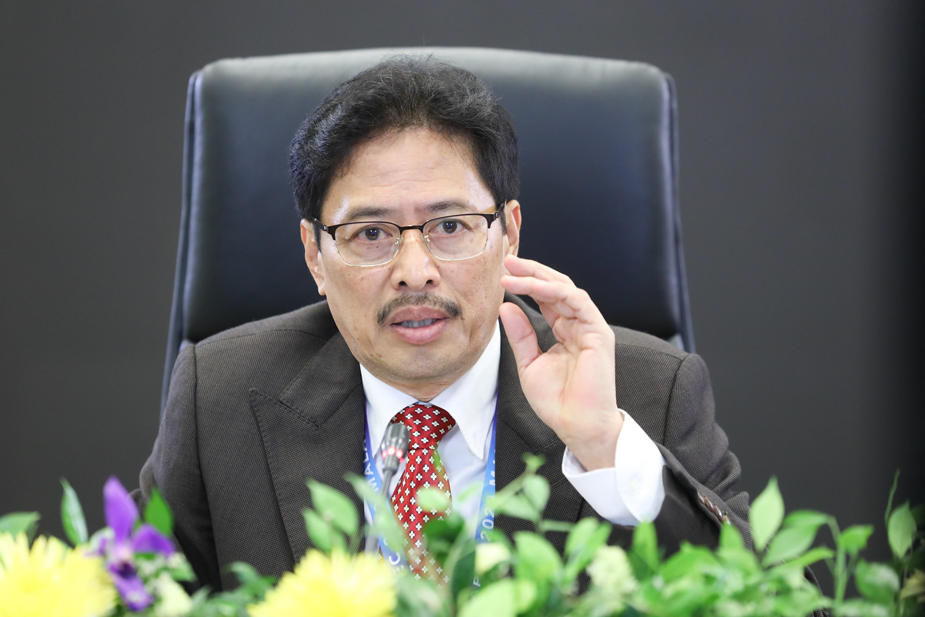Taking a Gender Lens to the Corruption Fight

“It is incumbent upon policymakers to identify data-backed policies that alleviate the double burden women currently face, because we all benefit when women participate in the economy.”
- Datuk Seri Rina Harun, Malaysia’s Minister of Women, Family and Community Development
Women are critical to the achievement of sustainable economic development in the APEC region. Studies have shown that corruption affects women and men disproportionately. Women, usually those at grassroots level, often experience the onslaught of corruption as victims rather than perpetrators of the crime. However, rather than seeing women as victims, they should now be regarded as part of the solution in the fight against corruption.
Being mindful of the differential impacts of corruption on gender and the urgency to address those underlying issues and concerns which could be both causes and effects of corruption on different genders, the Anti-Corruption and Transparency Experts Working Group (ACTWG) in collaboration with the Policy Partnership on Women and the Economy (PPWE) held a symposium titled “Gender Mainstreaming and Women Empowerment to Fight Corruption” at Putrajaya, Malaysia, before pandemic-related lockdowns were raised. The symposium aimed to benefit all APEC member economies and enforcement agencies in terms of providing them the ways and strategies to fight corruption through the development of knowledge, specifically, of the casual relationship between gender and corruption and its effect on women, men and society at large.
While its central topic has never been raised or duplicated in any previous APEC project, this symposium is a product of ongoing work, complimenting cross-fora meetings the PPWE held in Chile in 2019 on addressing gender and corruption. The impact of corruption on women was discussed and some case studies were presented by international organizations and members of academia. Speakers provided in-depth perspectives on how to design, implement and monitor gender mainstreaming anti-corruption policy and programs, which contributes to amplifying the political, economic and social empowerment of women.
Before the symposium, we mapped the landscape through a stocktaking survey that assessed the status of integration by APEC economies in gender mainstreaming and women empowerment to fight corruption. During the symposium, we discussed three broad areas, namely, the international perspectives of gender mainstreaming in anti-corruption initiatives delivered by experts; empowerment of women in law enforcement, economic, political and social spheres from the perspectives of the private and public sector and women-led grassroots organizations; and the implementation of gender mainstreaming policies and practices by policy makers and practitioners among APEC member economies.

The Anti-Corruption and Transparency Experts Working Group, which organized the symposium on Gender Mainstreaming and Women Empowerment to Fight Corruption, was chaired in 2020 by the author of this article, Datuk Seri Azam Baki (in photo).
We then worked at getting consensus among attendees regarding a set of policy recommendations that were formulated based on experts’ opinions, good practices, and conclusions elucidated during the discussions.
This resulted in a list of eight policy recommendations on gender mainstreaming and women empowerment to fight corruption, agreed upon by member economies and translated into our first-ever ACTWG digital publication titled “Bridging the Gender Gap: Gender Mainstreaming and Women Empowerment as a Game Changer in Anti-Corruption Initiatives.”
The ACTWG is committed in giving primary importance to consider the different effects and challenges of corruption faced by women and men. Applied well, the eight recommendations outlined in this report can be game changers, helping to ensure that future anti-corruption policies and programmes are truly made for the benefit of women, who can thus be rightfully engaged and empowered in anti-corruption activities at all levels in both the private and public sectors.
This publication suggests policies for economies’ consideration. Taking a gender lens to combating corruption would complement their commitment and obligations under international and regional anti-corruption initiatives.
Additionally, the policies also support the objectives of the La Serena Roadmap for Women and Inclusive Growth by removing barriers, such as corruption, to improve women’s economic participation. By having such policies in place, APEC economies will be able to make more prudent and efficient decisions in their plans, budgetary expenditures and usages of resources for our anti-corruption programmes and activities.
The consideration, adoption, and implementation of such policies in an economy’s anti-corruption plan may further reduce corruption while heeding the needs of both women and men.
Finally, I wish to highlight one the hallmarks of this publication, which paves the way for discussions in an upcoming virtual symposium to “Develop Gender Sensitive Training and Guide to Enhance Gender Mainstreaming and Women’s Empowerment in Fighting Corruption,” to be organized by New Zealand in 2021. This virtual follow-up symposium seeks to address the report’s invitation for member economies to consider whether “the existing and new complaint mechanisms to report corruption are gender-sensitive” by way of addressing the difficulties some women experience in reporting corruption, such as lacking confidence to do so. The symposium is also expected to tackle the empowerment of women who are victims of corruption by creating “gender-friendly” environments within anti-corruption agencies through training packages and best practice guidance, allowing more women to speak up.
#
Datuk Seri Azam Baki is the chief commissioner of the Malaysian Anti-Corruption Commission and serves as the Anti-Corruption Working Group Chair of APEC 2020.

